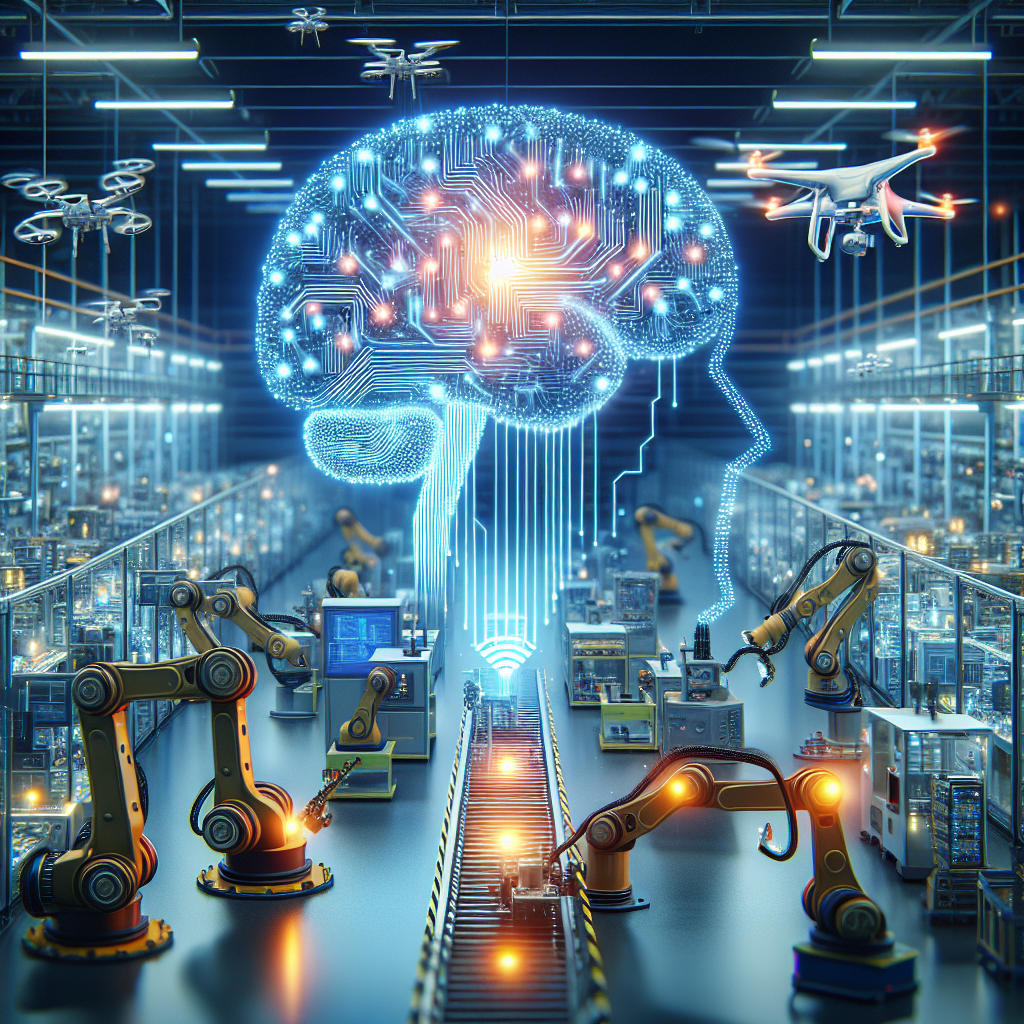In recent years, there has been a significant shift in the manufacturing industry towards the adoption of artificial intelligence (AI) technologies to drive innovation and efficiency. Smart manufacturing, also known as Industry 4.0, is a concept that leverages AI and other advanced technologies to create a more connected, automated, and data-driven manufacturing environment. This article will explore how AI-driven innovation is transforming the smart manufacturing landscape and the benefits it brings to manufacturers.
AI-driven innovation in smart manufacturing encompasses a wide range of applications, from predictive maintenance and quality control to supply chain optimization and production scheduling. By harnessing the power of AI, manufacturers can analyze vast amounts of data in real-time, identify patterns and trends, and make data-driven decisions to optimize processes and improve overall performance.
One of the key areas where AI is making a significant impact in smart manufacturing is predictive maintenance. By using AI algorithms to analyze equipment sensor data, manufacturers can predict when a machine is likely to fail and proactively schedule maintenance to prevent costly downtime. This predictive maintenance approach not only reduces maintenance costs but also extends the lifespan of equipment and improves overall operational efficiency.
Another important application of AI in smart manufacturing is quality control. AI-powered vision systems can inspect products on the production line in real-time, detecting defects and anomalies with greater accuracy than human inspectors. This not only improves product quality but also reduces scrap rates and rework, saving manufacturers time and money.
AI is also being used to optimize supply chain operations in smart manufacturing. By analyzing historical data, AI algorithms can predict demand patterns, optimize inventory levels, and improve logistics planning to ensure that materials and components are available when needed. This helps manufacturers reduce lead times, minimize stockouts, and improve overall supply chain efficiency.
In addition to predictive maintenance, quality control, and supply chain optimization, AI is also being used in smart manufacturing to optimize production scheduling. By analyzing production data and constraints, AI algorithms can generate optimized production schedules that minimize setup times, maximize throughput, and reduce production costs. This enables manufacturers to operate more efficiently and respond quickly to changing market demands.
Overall, AI-driven innovation in smart manufacturing is revolutionizing the way manufacturers operate, enabling them to improve efficiency, reduce costs, and enhance product quality. By leveraging AI technologies, manufacturers can gain a competitive edge in today’s fast-paced and increasingly digital manufacturing environment.
FAQs:
Q: What are some examples of AI technologies used in smart manufacturing?
A: Some examples of AI technologies used in smart manufacturing include machine learning algorithms for predictive maintenance, computer vision systems for quality control, and optimization algorithms for production scheduling.
Q: How can AI help manufacturers improve operational efficiency?
A: AI can help manufacturers improve operational efficiency by analyzing data in real-time, identifying inefficiencies, and optimizing processes to reduce costs and improve overall performance.
Q: What are the benefits of using AI in smart manufacturing?
A: The benefits of using AI in smart manufacturing include improved product quality, reduced downtime, increased efficiency, and cost savings.
Q: What are some challenges associated with implementing AI in smart manufacturing?
A: Some challenges associated with implementing AI in smart manufacturing include data security and privacy concerns, the need for skilled personnel to operate AI systems, and the upfront investment required to deploy AI technologies.
Q: How can manufacturers get started with implementing AI in smart manufacturing?
A: Manufacturers can get started with implementing AI in smart manufacturing by conducting a thorough assessment of their current processes and identifying areas where AI technologies can have the greatest impact. They can then develop a roadmap for implementation and work with AI vendors or consultants to deploy AI solutions effectively.

